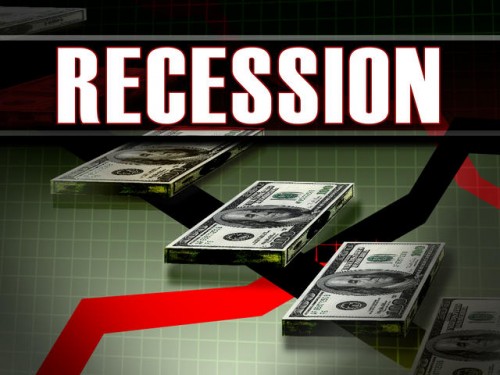Inflation: Inflation refers to the general rise in prices of goods and services in an economy over a period of time. Inflation also affects the real value of money in an economy. It is measured by the price of two sets of goods at two different time periods and the increasing costs are then computed. The increasing value of each product shows the rate of increase from base year to current year. The inflation affects an economy in both positive as well as negative ways.
The negative effect of inflation is to reduce the value of money and other monetary factors. Inflation reduces the purchasing power of the customers. On the other hand, the uncertainty of future inflation is quite discouraging for investment and savings.
However, if there is a rapid increase in inflation, then consumers are always concerned due to a potential escalation in prices for the future. The positive effect ensures that the Central Bank can maintain their nominal interest rate and encourages for investment in non-monetary plans. Inflation generally slows down an economy and it is proven beneficial only that time because more money in circulation is more savings, more employment, more salary, more consumption and a boost to an economy. But a high rate of inflation progresses into hyperinflation and this is caused by an excessive growth of money supply. Generally, the Central Bank is authorised for take an action against the inflation. The Central Bank increases the interest rate, through open market operations and through the setting of banking reserve requirements.

Recession: When a negative GDP trends indicates that the economy is not productive and not enough money in an economy, that could be a signal of Recession. In general, the recession is including under the negative inflation or deflation. Recession decreases the real value of money. A recession is such an indicator that showing that a fall in money supply and rise in unemployment rate. Unemployment is particularly high in recession. In recession, the price of goods and services is decreasing over a period of time and the economy stops growing and goes into inverse. Instead of companies earns more money, they make less in recession. Instead of companies have new jobs, they have a few jobs.
Consumers spend less money because more of them find themselves out of work. In recession, consumers purchasing power is very low and they do not want to borrow any loan for their requirements and in such a situation the bank takes a right step and erodes their interest rates for their consumers, through open market operations and through the setting of banking reserve requirements. The low rates of interest can make it simple for consumers to borrowing or spending and the entire economy can gradually starts spending on purchases. When they starting purchasing then the money supply also increases the overall economy.
Recession has a bigger risk for an economy as compared to inflation because inflation is always beneficial for an economy, if it has maintained a lower rate of inflation. Inflation can be used in an economy as a force for development. However, a recession can prove to be inadequate for customers and the entire economy.
About Author: This guest post has been written by Anil Desai who recommends PaceButler as the best service who buys old cell phones buy back and suggests looking at a PaceButler Review for knowing more details.

 Recruiting right talent for your company isn't easy. It requires lot of time and efforts to invite applications for a new job opening and eventually selecting the best candidate for the job. By using some online recruitment system, you can possibly save plenty of time and money, that goes in complete recruitment process and make HR efforts far more efficient.
Recruiting right talent for your company isn't easy. It requires lot of time and efforts to invite applications for a new job opening and eventually selecting the best candidate for the job. By using some online recruitment system, you can possibly save plenty of time and money, that goes in complete recruitment process and make HR efforts far more efficient.